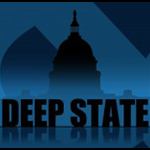This week,
Mike Lofgren spoke with Bill about what he describes as America’s “Deep State,” where elected and unelected officials collude to protect and serve powerful, vested interests. In conjunction with the show, Lofgren’s essay, “
Anatomy of the Deep State,” has been published on BillMoyers.com. We asked a number of people, including several previous
Moyers & Company guests, to share their reactions to the Deep State.
Andrew Bacevich on Washington’s Tacit Consensus
Military Historian
Photo: Dale Robbins
“What words best describe present-day Washington politics? The commonplace answer, endlessly repeated by politicians themselves and media observers alike, is this: dysfunction, gridlock, partisanship and incivility. Yet here’s a far more accurate term: tacit consensus. Where Republicans and Democrats disagree, however loudly, matters less than where their views align. Differences entertain. Yet like-mindedness, even if unacknowledged, determines both action and inaction.
In the ‘Bill-W.-Obama’ era, a neoliberal consensus defines American politics… With perceived threats to that system now coming primarily from abroad, exercising global leadership, backed by ample military muscle, now became one of liberalism’s abiding signatures. This modified consensus, superseding progressivism, dominated the American political scene for several decades during the latter half of the 20th century. Although the Cold War has long since ended, this emphasis on an expansive, militarized foreign policy persists.” Read more »
Heidi Boghosian on Mass Surveillance
Director, National Lawyers Guild
Photo: Dale Robbins
“The term Deep State aptly conveys how the private security industry has melded with government. It is soldered by plutocracy, perpetual war, reduction of industrial capacity, US exceptionalism and political malfunction. Lofgren is a credible and welcome interpreter of how these factors combine to exert control over us.
In addition to the Deep State’s obvious guardians — law enforcement agencies, Wall Street and Silicon Valley — the federal courts also sustain the state. The civil division of the southern district of New York, for example, handles cases defending the government’s ability to gather intelligence or protect state secrets and other information from disclosure. Importantly, Lofgren acknowledges that the social fluxes shaping history can be channeled or reversed not only by circumstance, but also by human agency.” Read more »
Danielle Brian on Legalized Corruption
Government Watchdog
Photo: Dale Robbins
“We don’t need fictional Frank Underwoods to tell us that Washington is rotten at its core. That’s because, as is often the case, the truth is much scarier than fiction. With the skill of a prosecutor, Lofgren shines a light on the secret web of influence-peddling that spreads far and wide beneath the surface of our democracy … What should really get your blood pumping are the strings being pulled by the real decision makers: the executives on Wall Street, in Silicon Valley and in the military-intelligence industrial complex surrounding the Beltway.
The really creepy part is that a lot of this corruption (the revolving doors, lobbying activities and campaign contributions, for instance) are legal. Mull that over: We’ve passed laws allowing the Deep State to not only exist, but also to flourish.” Read more »
Juan Cole on the Vulnerability of the Network
Professor of History, University of Michigan
“Lofgren seems to me to put too little emphasis on the impact of the September 11 attacks in allowing the vast expansion of the Deep State. It paralyzed Congress and the judiciary with regard to security and terrorism. So too did World War I and the Bolshevik Revolution allow the post-war Red Scare. These moments of timidity have occurred repeatedly in US history, but have been time-bounded. As 9/11 recedes, there will likely be a reassertion of other interests, as the author implicitly admits. A Federal judge has already called NSA domestic spying “Orwellian.” As Lofgren notes, Silicon Valley’s brand name is now endangered by being tagged in international markets as spyware, and powerful tech firms with plans for cloud computing are unlikely to take it lying down.”
Read more »
Lee Fang on the Glimmer of Hope
Lee Fang
Contributing Writer, The Nation and Republic Report
“In a media environment now dominated by flickering GIFs of dogs and cats, the best truth-tellers have emerged from quite unlikely backgrounds. Just as nobody could have predicted that a Hawaii-based consultant for the NSA would singlehandedly expose the largest surveillance system in human history, Mike Lofgren’s path from the Republican staff of the Senate Budget Committee to the pages of
Truthout might seem just as puzzling. And just as Edward Snowden’s revelations exposed a world increasingly controlled and watched by an unaccountable bureaucracy, Lofgren has seamlessly articulated an ascendant American power elite that many tacitly acknowledge; yet few understand.
In his essay, “Anatomy of the Deep State,” Lofgren explains how the confluence of corporate and security state power increasingly dominates the decisionmaking in Washington. While this critique has been made in the past, most notably from Professor G. William Domhoff, Lofgren provides important insights into the machinations of political control, along with historical background. He also adds a glimmer of hope, noting that the Deep State relies not just on money and access, but predictability. The chance of democratic revival will not come from the political processes taught in Civics 101. Rather, it may come from some uncertain interruption in the future or from a rot caused by the parasitic nature of the Deep State itself.”
Henry Giroux on the Neoliberal Revolution
Cultural Critic
Photo: Dale Robbins
“Two things are essential for challenging the new authoritarianism. First, there needs to be a change in collective consciousness about what democracy really means and what it might look like. This is a pedagogical task whose aim is to create the formative culture that produces the agents necessary for challenging neoliberal rule.
Secondly, there is a need for a massive social movement with distinct strategies, organizations and the will to address the roots of the problem and imagine a very different kind of society, one that requires genuine democratic socialism as its aim. Democracy is on life support in the US and working within the system to change it is a dead end, except for gaining short-term reforms. The struggle for a substantive democracy needs more, and the American people expect more.” Read more »
Tim Wu on the Partisan Sideshow and Silicon Valley
“The mistake that Lofgren makes is to think that what he describes is only the case for a “Deep State” centered on national security or law enforcement. To be sure, the attention is warranted, for these are the parts of the government that wield the most terrifying powers, particularly overseas. But anyone who has worked for other parts of government knows that they too operate under the radar screen. And here, in the real business of government, we find that parties are often less relevant than are industry loyalties; instead of really being a Democrat or Republican, one is more accurately loyal to the cable industry, big oil, Hollywood and so on.
As a minor aside — and perhaps I might be accused of defending my own party — Lofgren is not familiar with Silicon Valley and makes a few errors in this respect.” Read more »









